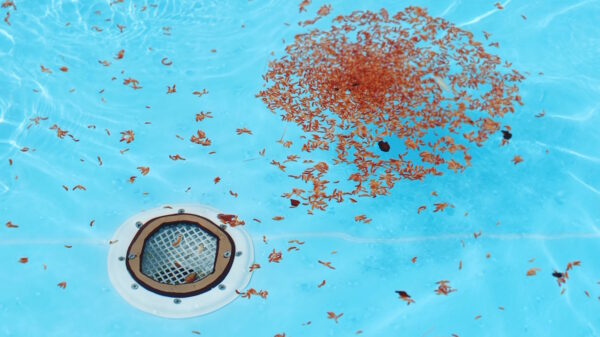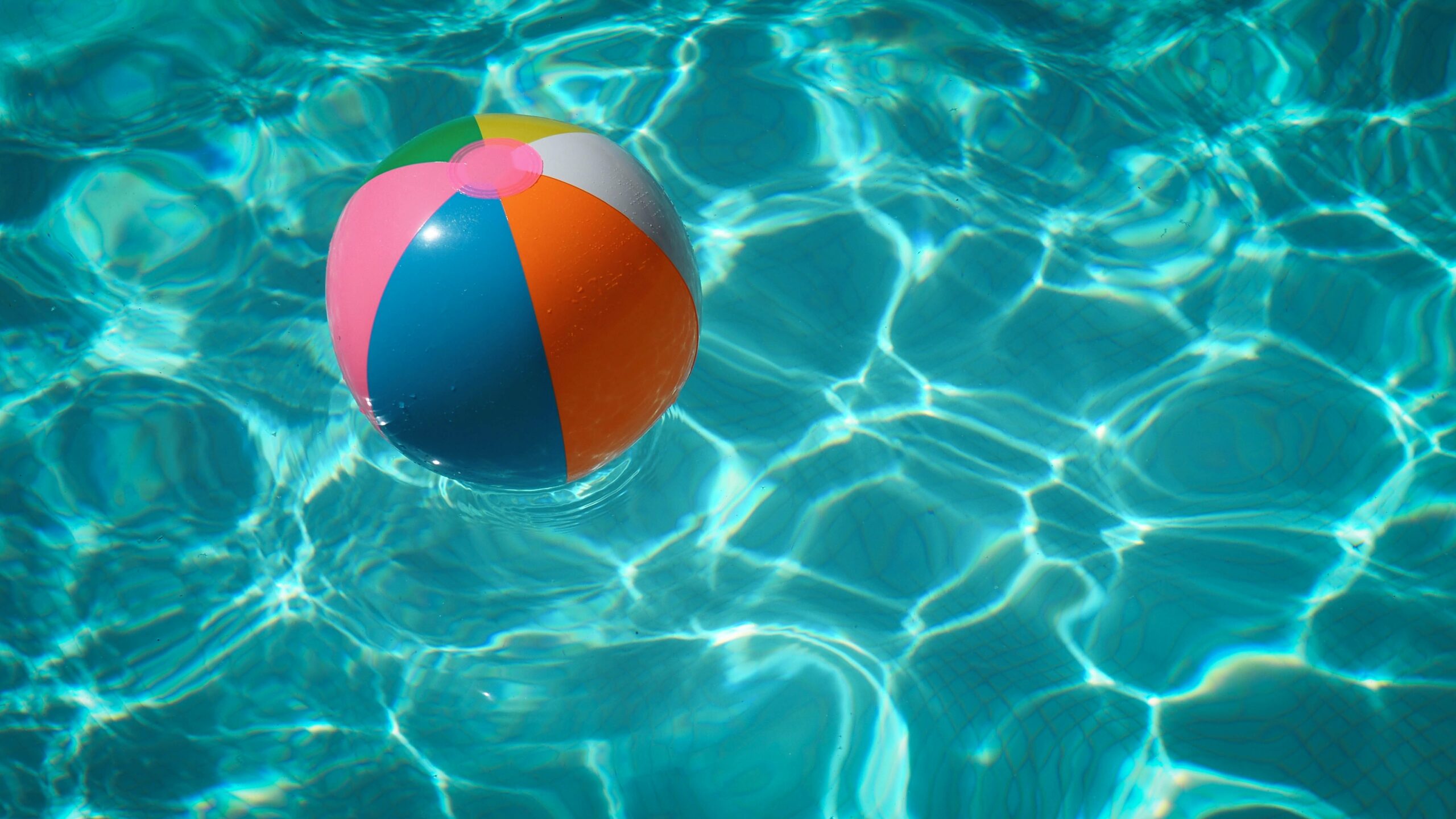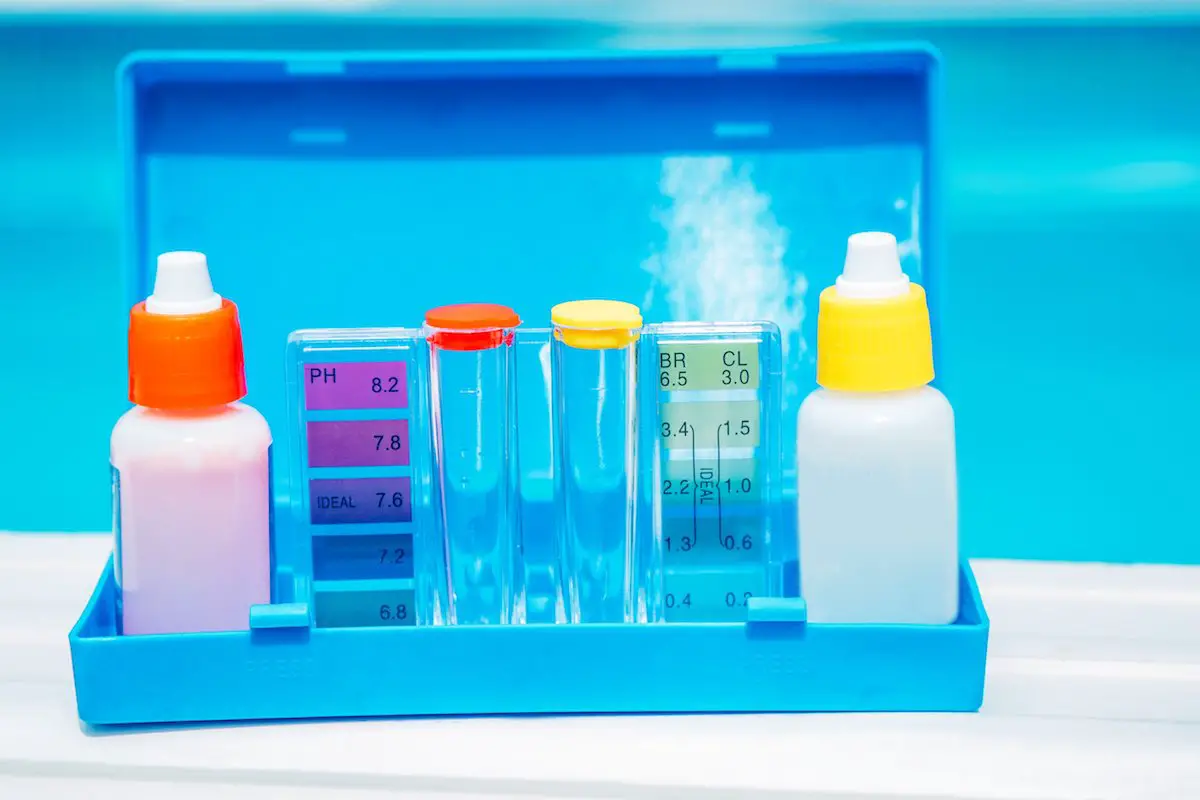While phosphates are essential for plant growth, they can cause problems in swimming pools. This is because phosphates are a common source of pool contamination and can cause problems like algae blooms. Additionally, high phosphate levels can cause staining and cloudiness in your pool water. So, where do pool phosphates come from?
Pool phosphates can come from a variety of places in and around your swimming pool, but the common areas that pool phosphates come from include:
- Pool Water
- Water Runoff from Other Areas (Fertilized Lawns or Gardens)
- Outside Organic Influencers
- People In the Pool (Sweat, Urine, and Cosmetics)
So, now that you know that pool phosphates can come from a variety of different sources, both inside and outside of your pool. It’s important to understand where they’re coming from so you can take steps to reduce or eliminate them. In this article, we’ll explore the most common sources of phosphates in pools and what you can do to ensure healthy pool water free of algae growth.

What Are the Sources of Pool Phosphates?
Pool phosphates are a type of organic chemical that comes from phosphoric acid. They have phosphorus and can be found almost everywhere on earth in different organisms and systems and they help with the growth rate of living things. There are four primary sources of phosphates in swimming pools:
1. Actual Pool Water
Many towns dose their water supply with phosphates to lower lead and copper levels. For example, in cities like Dallas, TX it’s found in the local water supply.
- Pool cleaners & chemicals, scale/stain removers, and stabilizers often contain phosphate
2. Water Runoff – Additional Water From Other Areas
A common way is through runoff from fertilized lawns or gardens. When it rains, the phosphate-rich water can flow into storm drains and eventually make its way into your pool. So, if your pool is located near agricultural land, golf courses, or even urban areas with lawns and gardens, water runoff is likely to introduce phosphates into your pool.
- This can be a particular problem after heavy rains when large amounts of contaminated water can enter your pool.
- Pool chemicals and fertilizers, as well as garden maintenance materials, may contain phosphate.
3. Outside Organic Influencers
Outside organic influencers such as leaves, branches, grass, flowers, insects, and other small animals can enter your pool and decompose, increasing phosphate levels.
4. People In the Pool
Yes, even swimmers can contribute to phosphate levels in the pool. Urine and sweat both contain phosphates, which can end up in the water. Another way that phosphates can enter your pool is through swimmer waste, such as sweat, urine, and cosmetics.
- A single bather can introduce over 30 pounds of phosphates into a large pool each season!
What Do Phosphates Do?
Phosphates have little impact on pool water quality unless the levels are high or there is an algae problem. Phosphates adhere to calcium and other minerals, and they do not interfere with chlorine. In some cases, having phosphates may help to make the water in your pool softer.
- Phosphates, at concentrations above 1000 ppb, and in pools with an algae problem, can make things worse.
- They assist in the growth of algae by nourishing it, as they act as a food source for algae and other aquatic plants, leading to excessive growth.
When the algae dies, it releases more phosphates into the water, allowing new algae to grow and creating a vicious cycle. This is known as an “algae bloom” in nature, and it’s why phosphates have such a poor reputation.
Are Phosphates a Problem?
The level of phosphates in a pool is not always an indicator of an algae problem. High phosphate levels can cause cloudy water and scale build-up on pool surfaces, but these are cosmetic issues.
- If you suspect that your pool has high phosphate levels, the best way to deal with the issue is to test the water.
- Then take steps to remove phosphates if they are indeed present.
- There are a number of products on the market that can help with this.
Phosphates occur naturally in many places, but they can cause problems if the levels are too high. However, with a little care and attention, you can keep your pool free of phosphate buildup and enjoy clear, sparkling water all season long.
How Do You Test For Phosphates?
You can test for phosphates using a simple pool test kit. These are available at most pool supply stores or online. To use the kit, follow the instructions that come with it.
- Add a sample of pool water to a vial of chemicals and then compare the color of the water to a chart.
- If the levels are too high, there are a number of products that can remove phosphates from your pool water.
You can also have your pool water tested by a professional if you are unsure of how to do it yourself. Many pool service companies offer this service.

Is Removing Phosphates Even Worth It?
In general, most pool owners don’t need to test for or control phosphate levels. If your pool water is otherwise healthy and balanced, phosphate residues will have no impact on the quality of the water.
- An algaecide is a much more direct and efficient technique of eradicating algae than relying on independent testing and attempting to regulate phosphorus levels.
How Do You Control Phosphate Levels In a Pool?
Although it may be difficult, you can take steps to lower the phosphate levels in your pool with these tips.
Pool Skimming
- By removing dead and decaying leaves, you also rid your pool of one of the primary sources of phosphates. This will not only improve its appearance but make it healthier overall.

Maintain Filters and Pump
It is important to keep your pool’s filters and pumps clean and in good working order. A well-functioning filtration system will help to remove phosphates from the water. Clean Your Pool regularly cleaning your pool regularly will also remove phosphate build-up.
- Be sure to brush down the walls and floors of the pool to loosen any phosphate deposits that may have accumulated.
- Use a phosphate remover or the other products on the market that can remove phosphates from your pool water.
Keep Pool Levels Balanced
- Monitoring and testing the calcium levels in your pool is important for maintaining water quality.
- Calcium is a positive ion that bonds with phosphorous, a negative ion.
- This is why phosphates can soften pool water, but also why low calcium levels can create high phosphate levels.
- If you balance your pool for calcium, it will naturally control phosphates.
- Maintaining the correct pH, alkalinity, and chlorine levels will help to prevent algae growth.
Use an Algaecide
Unfortunately, using a commercial algaecide will likely have the same result as feeding your tank with excess nutrients. All of this fuss about phosphates is an attempt to control algae; simply confront the problem at its source and use a high-quality algaecide regularly.
- The bromine and chlorine in your pool will bind with the phosphate molecules and make them inactive, so you don’t need to do anything else.
- If you are having problems with algae, it’s likely due to other factors such as high pH, low chlorine levels, or too much sunlight.
From what you have read here, following these phosphate removal methods are a part of your pool maintenance. When you the pool owner regularly maintain your pool, you control your phosphate levels. You don’t need to use a phosphate remover, and, in case it’s not obvious, you don’t have to. To be specific, phosphate removers may include chemicals that are even more harmful than phosphates themselves.
Conclusion
Despite all the bad information out there, some phosphates in your pool are inevitable. Rather than worrying about phosphate levels, focus on keeping your pool water balanced and algae-free. The only time, you should be concerned about phosphates is when the level gets too high, which can lead to algae growth. However, if you want to lower the phosphate levels in your pool, you can do so by regularly skimming debris, maintaining your filters, and keeping your pool water balanced. You can also use an algaecide to prevent algae growth.















